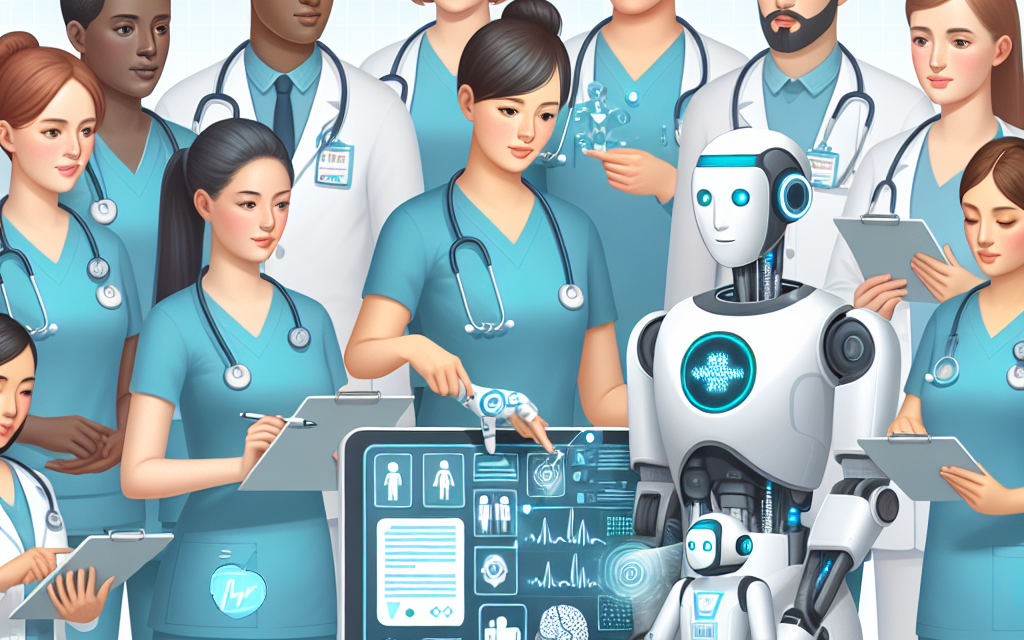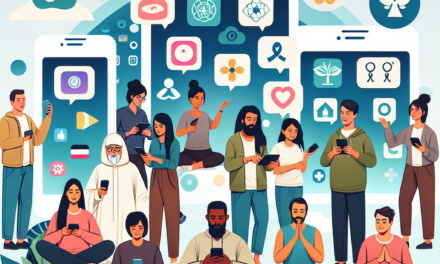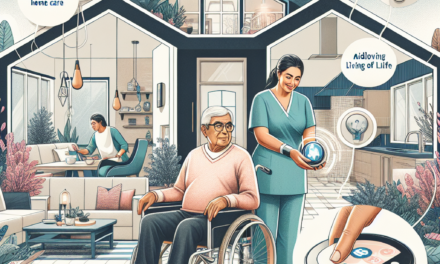‘A Lot More Teamwork’: Healthcare Explores the Use of AI for Nursing Workflows
The integration of artificial intelligence (AI) into healthcare has been a topic of significant interest and research in recent years. As the demand for healthcare services continues to rise, the need for efficient nursing workflows becomes increasingly critical. AI technologies are being explored as potential solutions to streamline processes, enhance patient care, and alleviate the burdens faced by nursing professionals. This article delves into the various ways AI is transforming nursing workflows, the challenges and opportunities it presents, and the future of teamwork in healthcare.
1. Understanding AI in Healthcare
Artificial intelligence encompasses a range of technologies that enable machines to perform tasks that typically require human intelligence. In healthcare, AI can analyze vast amounts of data, recognize patterns, and make predictions, which can significantly enhance decision-making processes. The application of AI in nursing workflows is particularly promising, as it can help nurses manage their time more effectively, improve patient outcomes, and reduce the risk of errors.
AI technologies in healthcare can be categorized into several types:
- Machine Learning: Algorithms that learn from data to make predictions or decisions without being explicitly programmed.
- Natural Language Processing (NLP): The ability of machines to understand and interpret human language, which can be used for documentation and communication.
- Robotic Process Automation (RPA): Software robots that automate repetitive tasks, freeing up nurses to focus on patient care.
- Predictive Analytics: Tools that analyze historical data to forecast future events, such as patient admissions or potential complications.
- Computer Vision: The ability of machines to interpret and make decisions based on visual data, which can be applied in imaging and diagnostics.
As these technologies evolve, their integration into nursing workflows is becoming more feasible, leading to improved efficiency and collaboration among healthcare teams.
2. Enhancing Patient Care through AI
One of the primary goals of integrating AI into nursing workflows is to enhance patient care. AI can assist nurses in various ways, from monitoring patient conditions to providing personalized treatment plans. By leveraging AI, healthcare providers can ensure that patients receive timely and appropriate care, ultimately leading to better health outcomes.
AI-powered tools can monitor vital signs and alert nurses to any significant changes in a patient’s condition. For instance, systems like the Early Warning Score (EWS) utilize algorithms to analyze patient data and predict deterioration. A study published in the journal *Critical Care Medicine* found that implementing EWS systems reduced the incidence of cardiac arrests in hospitals by 30%. This proactive approach allows nurses to intervene earlier, potentially saving lives.
Moreover, AI can facilitate personalized care by analyzing patient data to identify the most effective treatment options. For example, IBM’s Watson Health uses machine learning to analyze medical literature and patient records, providing evidence-based recommendations for treatment. This capability not only supports nurses in making informed decisions but also empowers patients by involving them in their care plans.
AI can also enhance communication between healthcare providers and patients. Natural language processing tools can transcribe and summarize patient interactions, ensuring that critical information is captured accurately. This reduces the risk of miscommunication and allows nurses to focus on building rapport with their patients, which is essential for effective care.
3. Streamlining Administrative Tasks
Nursing professionals often face a myriad of administrative tasks that can detract from their primary focus on patient care. AI technologies can help streamline these workflows, allowing nurses to spend more time with patients and less time on paperwork.
Robotic Process Automation (RPA) is one of the most promising applications of AI in administrative tasks. RPA can automate repetitive processes such as scheduling appointments, managing patient records, and billing. For instance, a study conducted by the American Nurses Association found that nurses spend approximately 30% of their time on administrative tasks. By implementing RPA, healthcare organizations can reduce this burden, enabling nurses to dedicate more time to direct patient care.
Additionally, AI can assist in documentation by using natural language processing to transcribe nurse-patient interactions. This technology can automatically generate clinical notes, reducing the time nurses spend on documentation. A pilot program at a major hospital demonstrated that using AI for documentation reduced the time spent on charting by 50%, allowing nurses to focus on patient interactions.
Furthermore, AI can enhance scheduling processes by predicting patient demand and optimizing staff allocation. For example, predictive analytics can analyze historical data to forecast peak times for patient admissions, enabling hospitals to schedule nursing staff more effectively. This not only improves workflow efficiency but also ensures that patients receive timely care during busy periods.
4. Addressing Challenges and Ethical Considerations
While the potential benefits of AI in nursing workflows are significant, there are also challenges and ethical considerations that must be addressed. The integration of AI technologies into healthcare raises questions about data privacy, job displacement, and the need for proper training.
Data privacy is a critical concern, as AI systems often require access to sensitive patient information. Healthcare organizations must ensure that they comply with regulations such as the Health Insurance Portability and Accountability Act (HIPAA) to protect patient data. Implementing robust cybersecurity measures and ensuring that AI systems are transparent in their data usage are essential steps in addressing these concerns.
Job displacement is another issue that arises with the adoption of AI technologies. While AI can automate certain tasks, it is crucial to recognize that the role of nurses is not solely about performing tasks; it also involves critical thinking, empathy, and human interaction. Rather than replacing nurses, AI should be viewed as a tool that enhances their capabilities and allows them to focus on higher-level responsibilities.
Training and education are vital for the successful integration of AI into nursing workflows. Nurses must be equipped with the skills to use AI tools effectively and understand their limitations. Ongoing education and professional development programs should be implemented to ensure that nursing professionals are prepared for the evolving landscape of healthcare technology.
5. The Future of Teamwork in Healthcare
The integration of AI into nursing workflows is not just about technology; it is also about fostering a culture of teamwork in healthcare. As AI tools become more prevalent, collaboration among healthcare professionals will be essential to maximize their potential.
AI can facilitate communication and collaboration among interdisciplinary teams by providing real-time data and insights. For example, AI-powered dashboards can aggregate patient information from various sources, allowing nurses, physicians, and other healthcare providers to access a comprehensive view of a patient’s condition. This shared information promotes teamwork and ensures that all members of the care team are on the same page.
Moreover, AI can support decision-making processes by providing evidence-based recommendations. When nurses have access to AI-generated insights, they can collaborate more effectively with physicians and other healthcare professionals to develop comprehensive care plans. This collaborative approach not only improves patient outcomes but also enhances job satisfaction among healthcare providers.
As AI continues to evolve, the future of nursing workflows will likely involve a greater emphasis on teamwork and collaboration. Healthcare organizations must foster an environment that encourages open communication and collaboration among all team members. By embracing AI as a partner in care, nurses can enhance their roles and contribute to a more efficient and effective healthcare system.
Conclusion
The exploration of AI in nursing workflows presents a transformative opportunity for the healthcare industry. By enhancing patient care, streamlining administrative tasks, and fostering teamwork, AI has the potential to revolutionize the way nurses work. However, it is essential to address the challenges and ethical considerations associated with AI integration to ensure that patient safety and data privacy are prioritized.
As healthcare organizations continue to adopt AI technologies, ongoing education and training for nursing professionals will be crucial. By equipping nurses with the skills to leverage AI effectively, the healthcare industry can create a more efficient and collaborative environment that ultimately benefits patients and providers alike.
In summary, the future of nursing workflows lies in a harmonious partnership between human expertise and artificial intelligence. By embracing this collaboration, healthcare can move towards a more efficient, effective, and patient-centered model of care.





